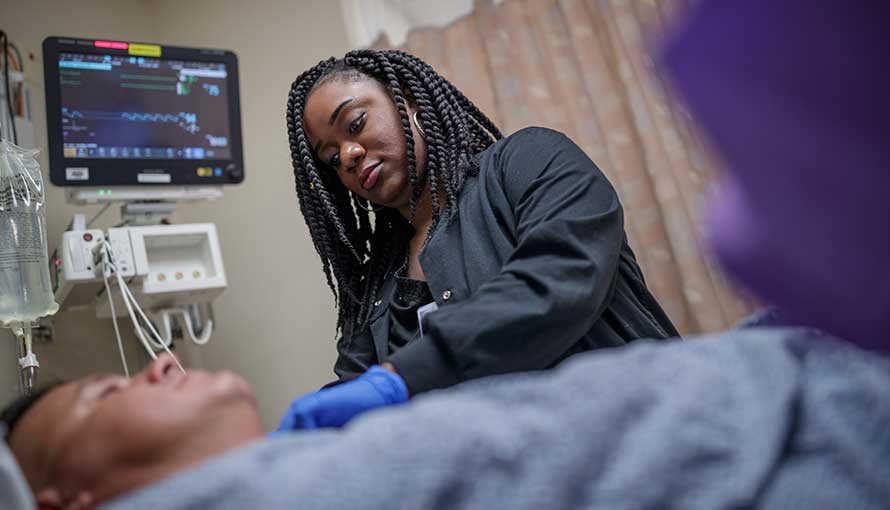Enhanced Recovery After Surgery (ERAS)

Video: Your Surgical Journey Guided Tour
ERAS stands for Enhanced Recovery After Surgery. Many research studies show that the earlier you get out of bed and start moving and the earlier you begin eating and drinking after your surgery, the faster your recovery time. ERAS is a coordinated effort made by you and your healthcare team to ensure you receive the best possible care and outcome during your surgery and hospitalization.
Why Use ERAS?
Many experts say that using ERAS techniques can speed healing after surgery with fewer complications, patients experience less pain and spend less time in the hospital.
Key elements of ERAS include:
- Preparation and Planning Before Admission: You will receive clear instructions preoperatively to help you understand your surgery process and know what to do before you get here.
- Preoperative Guidelines and Postoperative Recovery: Allowing you to drink clear liquids containing electrolytes and carbohydrates up to two hours before surgery, focused efforts on pain control, and standing and walking soon after surgery, are important aspects of your care that we will focus on to minimize post-op complications and speed your recovery.
Important Points to Consider Before Surgery
During your clinic visit, your nutrition, activity level, and smoking/drinking habits will be discussed. You can play an active role in your care by eating well, exercising, and giving up smoking and alcohol as soon as possible before your surgery. Please follow your healthcare team’s advice regarding any changes you make.
- Eating Well and Exercise: Your body will need energy for repair after surgery. Keeping physically active before your surgery will help you recover quicker.
- Relaxation: We have Moffitt resources that can speak with you and provide you with helpful tools and techniques.
- Smoking and Alcohol: Giving up or cutting down as soon as possible before surgery will help speed up your recovery and reduce your risk of developing complications.
Who Uses ERAS?
Not every surgery uses an ERAS approach. At Moffitt, there are certain procedures and specific diseases where ERAS may not be used. Speak to your anesthesiologist or primary doctor to see if Enhanced Recovery After Surgery is right for you.
For help and resources at Moffitt, please contact your healthcare team or the Social Work Office at (813) 745-8407. We can provide support, you are not alone.
More Resources:
Download: Contact ERAS Coordinator Katie Letchworth (PDF)
Preparing For Your Surgery
